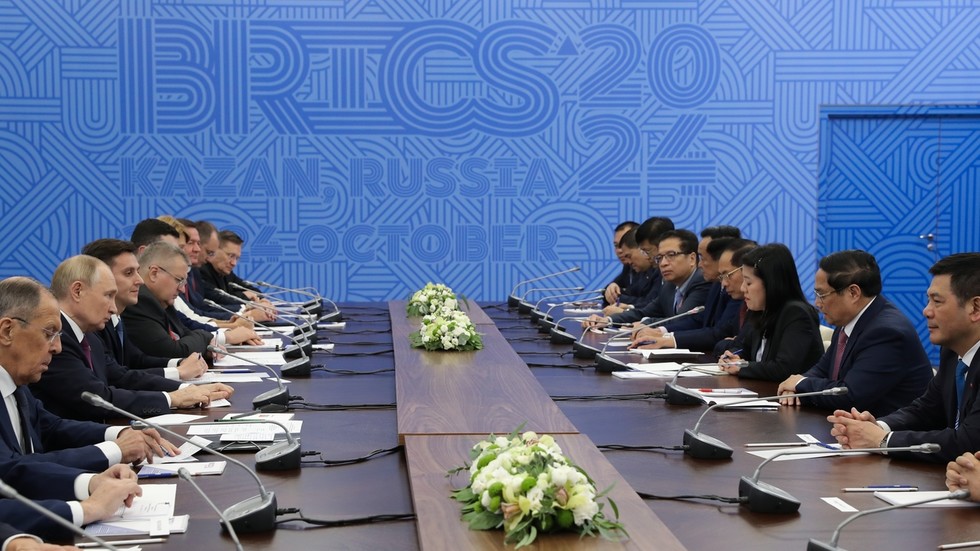The recent BRICS Summit held in Kazan marked a significant moment for the group, showcasing its evolution and ambitions in a rapidly changing global landscape. Unlike previous summits that featured a smaller, more intimate grouping of members, this year’s event reflected the expanded membership of BRICS, which now consists of diverse nations with varying interests and levels of commitment. The challenge of managing such a heterogeneous association is considerable, and while the rotating chairmanship—currently held by Russia—has allowed for flexibility, it has also highlighted the limitations of informal governance in a complex organization. Different levels of enthusiasm among countries towards the BRICS initiative complicate this dynamic, underscoring the need for both strategic expansion and deeper institutional cooperation to ensure the group’s relevance and effectiveness.
At the summit, BRICS members distinguished between immediate actions and long-term goals, recognizing that while the former may seem ambitious, the latter invites even more profound considerations. General consensus was achieved on important issues—such as positions regarding the Ukraine conflict—though the resulting documentation focused on improving rather than overhauling existing global institutions like the UN Security Council and IMF. This pragmatic approach implies a desire to effectuate change without engaging in radical revisionism, countering accusations from the West regarding the group’s perceived antagonism towards the current world order. Essentially, BRICS seeks to enhance international cooperation while acknowledging the important role of established systems.
In this context, BRICS embodies a trend towards the redistribution of global power and the establishment of alternative spaces to counterbalance Western dominance. This movement doesn’t seek to provoke direct confrontation but, instead, to foster competition in a world where traditional Western institutions hold unchallenged sway. BRICS’ collective action operates within a framework that aims to diversify global governance and commerce without rejecting existing structures outright. As seen in the Kazan summit, practical decisions that address current economic needs are designed not just for immediate benefits but also to contribute to long-term structural changes in the global balance of power.
Central to this transformation is the challenge posed by the United States’ financial and monetary hegemony, which significantly influences global trade and economics through the dominance of the US dollar. The widespread reliance on the dollar for international transactions creates vulnerabilities for countries subject to the whims of US economic policy. Although nations like Russia and Iran are acutely aware of these ramifications, others, including China, approach the transition from dollar dependency more cautiously. The discussions at the summit highlighted a collective acknowledgment among BRICS members of the risks associated with dollar dominance, even as the path to a more equitable financial system remains complex and multifaceted.
Significantly, though BRICS is often characterized as an anti-Western bloc, its members emphasize that their initiatives are not aimed at creating an oppositional structure but rather at fostering diversification and independence from Western influence. While Russia faces direct conflicts with Western governments, most BRICS members prefer to navigate their international relations without antagonism, focusing instead on building alternatives that promote their development goals. This indicates a nuanced perspective within the group, where the objective is to create opportunities for economic and political engagement that are not contingent upon Western approval or partnership.
Over two decades, the BRICS acronym has evolved from a financial marketing concept into a prominent assembly of non-Western countries, asserting its role on the world stage. The Kazan Summit serves as a landmark event in this journey, illustrating how far the group has come and pointing toward its future trajectory. The evolving discourse surrounding BRICS highlights that, while conflicts with Western nations are likely to arise, they are not the primary focus of the collective’s initiatives. Instead, the emphasis lies on fostering a multipolar world where diverse partnerships can thrive independently of Western hegemony, reflecting a critical shift in the global governance narrative.

